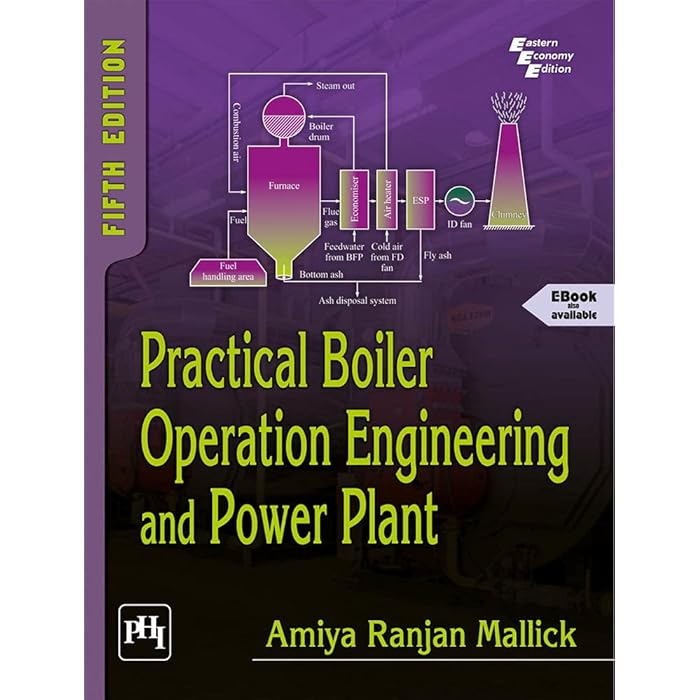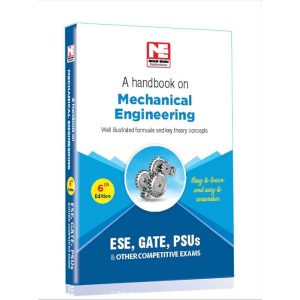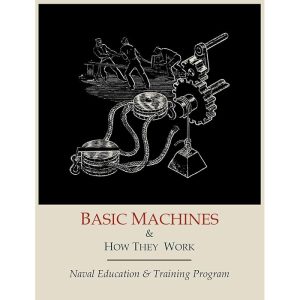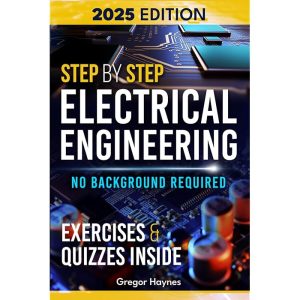Description
“Practical Boiler Operation Engineering and Power Plant” refers to the practical aspects of running and maintaining steam boilers and power plants, ensuring that they operate efficiently, safely, and in compliance with regulatory standards. This involves knowledge in the areas of mechanical, electrical, and chemical engineering, with a focus on systems used to generate and distribute power.
Here’s a breakdown of what it typically involves:
### 1. **Boiler Operations**
– **Boiler Types**: Understanding the different types of boilers (e.g., fire-tube, water-tube, electric, and industrial boilers) and their specific uses in various industries.
– **Boiler Components**: Familiarity with the key components of boilers, such as burners, economizers, superheaters, feedwater pumps, and pressure vessels.
– **Heat Transfer Mechanisms**: Understanding the processes of heat generation, transfer, and utilization within the boiler system.
– **Fuel Systems**: The use of various fuels like coal, natural gas, oil, biomass, or waste, and how they are burned and managed for efficient combustion.
– **Boiler Efficiency**: Monitoring and optimizing combustion and heat transfer to improve boiler efficiency, reduce emissions, and lower operational costs.
### 2. **Power Plant Operations**
– **Power Generation Systems**: Operation of steam turbines, gas turbines, or combined cycle plants that convert heat energy into mechanical energy and electricity.
– **Plant Layout**: Knowledge of the general layout of power plants, which may include boilers, turbines, generators, transformers, and auxiliary systems.
– **Control Systems**: Managing the plant using Distributed Control Systems (DCS) or Supervisory Control and Data Acquisition (SCADA) systems for process monitoring, control, and automation.
– **Steam Cycle**: Understanding the Rankine cycle (in steam plants) and Brayton cycle (in gas turbines), including the processes of steam generation, expansion in turbines, and condensation in condensers.
### 3. **Boiler and Power Plant Maintenance**
– **Preventive and Corrective Maintenance**: Scheduling regular maintenance to prevent breakdowns and addressing issues when they arise, ensuring the plant operates efficiently.
– **Inspection**: Routine inspections of boilers and turbines to ensure structural integrity, detect leaks, and address wear or corrosion.
– **Troubleshooting**: Diagnosing operational issues, such as boiler shutdowns, pressure fluctuations, or turbine malfunctions, and determining corrective actions.
– **Safety Protocols**: Enforcing stringent safety measures to prevent accidents, such as boiler explosions or turbine failure, including regular safety drills, pressure tests, and system shutdowns for inspection.
### 4. **Energy Management**
– **Heat Recovery**: Capturing waste heat and using it in systems like economizers or combined heat and power (CHP) to increase overall plant efficiency.
– **Emission Control**: Managing the emissions of harmful gases (like NOx, SOx, and CO2) through advanced filtration, scrubbing, and other technologies to meet environmental standards.
– **Energy Audits**: Conducting audits to assess plant energy consumption, identifying energy-saving opportunities, and optimizing processes.
### 5. **Instrumentation and Control**
– **Sensors and Gauges**: Using various sensors (e.g., pressure, temperature, flow meters) to monitor and control the operation of boilers and turbines.
– **Automation**: Implementing automated systems to control combustion, feedwater supply, and turbine operation.
– **Troubleshooting Instrumentation**: Identifying and resolving issues with gauges, sensors, and controllers that may affect plant performance.
### 6. **Environmental and Regulatory Compliance**
– **Regulations**: Complying with national and international regulations on emissions, water usage, waste disposal, and power production.
– **Environmental Impact**: Minimizing the environmental impact of the power plant by reducing emissions, increasing fuel efficiency, and promoting sustainability.
– **Licensing and Certifications**: Ensuring that boiler and power plant operators hold the necessary certifications and that the facility complies with safety and operational regulations.
### 7. **Training and Skill Development**
– **Operator Training**: Ensuring plant operators are well-trained in both theoretical knowledge and practical operation of boilers and power plants. This includes classroom learning and hands-on practice.
– **Simulation**: Using simulators for practical training in boiler operations, troubleshooting, and emergency scenarios to ensure operators can act effectively during unexpected events.
### 8. **Optimization and Troubleshooting**
– **Continuous Improvement**: Monitoring system performance and making adjustments to improve plant efficiency and reduce downtime.
– **Advanced Technologies**: Implementing cutting-edge technologies like artificial intelligence (AI) and machine learning to predict maintenance needs and optimize operations.
– **Energy Efficiency Measures**: Identifying and eliminating inefficiencies in the boiler and power plant systems.
—
### Key Areas of Focus:
– **Boiler Design & Operation**: Includes understanding fuel properties, combustion theory, and the specific design parameters for safe and efficient boiler operation.
– **Turbine Operation & Maintenance**: Detailed knowledge of turbine types, stages, and failure modes, including vibration analysis, thermodynamics, and lubrication.
– **Power Generation Systems**: Understanding how to convert steam or gas into electricity efficiently and troubleshoot mechanical or electrical failures.
– **Safety and Environmental Protection**: Ensuring that safety protocols are in place and the plant is compliant with environmental protection standards.
By mastering these practical aspects, engineers, operators, and maintenance teams can ensure that power plants and boiler systems operate safely, efficiently, and cost-effectively, while complying with environmental regulations.





Reviews
There are no reviews yet.